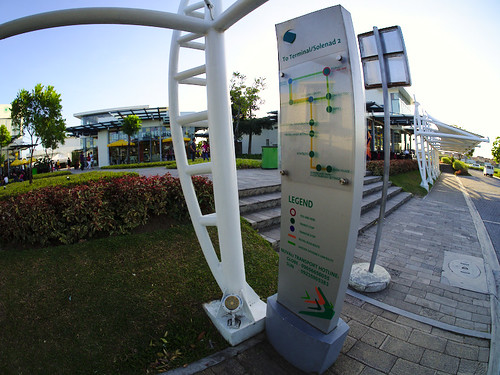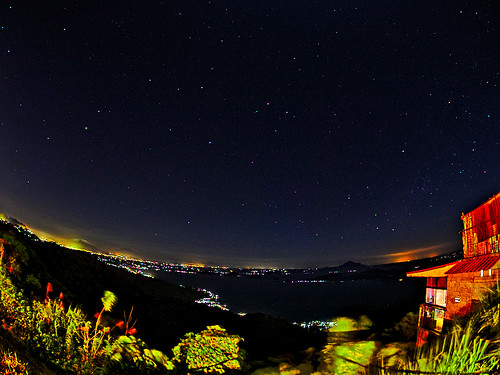Er, no, it's not what you think. I bet that caught some attention though. LOL
It was not only too long ago that I've decided to completely shoot using RAW format instead of the usual JPEG. After years of being lazy by shooting JPEG I've decided to improve my usual output. No it wasn't due to any epiphany of sorts. I just got fed up with my usual image quality. It doesn't surprise me anymore half the time. Don't get me wrong, there's nothing bad about shooting using JPEG. Modern cameras have very capable image processing engines. But the thing is, that's hardly pushing the envelope...
 |
| Where Do I Go From Here? |
Though most modern digital cameras have decent image quality, it may not exactly be what you envision in terms of color, contrast and brightness. Sure you can edit it, but all that countless editing can only do so much. Also, there's not much you can do with what you have. A lot of details have been lost in the process of converting from RAW to JPEG.
So what stopped me from shooting RAW at the beginning? A few factors...
Overhead - Shooting RAW means saving files in huge formats. A rough calculation is that the file size is around the same proportion as your sensor size. Therefore, a 6 megapixel generates a file that's 6MB. In JPEG, having it at maximum size at its best quality creates a file that's only half of that. As time went by, memory card storage has become more affordable and in larger capacities as well therefore addressing this. It also helps that I outgrew my spray-and-pray shooting style when I was a newbie and being more deliberate with my pictures.
Workflow - In JPEG I'd usually just sift through the images and delete the bad ones... Or if I feel like it, I can edit those that looked kinda okay. If you're working in RAW, it's not that simple. RAW files are unprocessed. That means that it includes even the flaws of the initial image capture that are usually corrected when the camera processes from RAW to JPEG. Think of RAWs as the film negatives. They're not the actual picture. So they don't exactly look lovely. After a long search I was able to finally find a decent image manager that processes RAW files really well, and it's fairly decent in memory management. It doesn't hog up too much RAM and CPU. It's called DarkTable. I encourage everyone to look it up as an alternative to expensive commercial software.
Data Storage - RAW means having bigger files. Solution, a bigger capacity hard disk. These have become more affordable these days.
Cost - Commercial software like Adobe Lightroom is fairly expensive. Especially if you're not really making money from photography. No, bootlegging a copy doesn't count. I was looking for similar free software and I found several. You can find them detailed in the articles here and here. And that's just for starters. Before DarkTable had me totally convinced, I was using Lightzone and it was awesome too, albeit a few quirks I that wasn't comfortable with. But maybe it's just me so I'd recommend it to others.
 |
| Fuji look wannabe. Fuji-like tone curve, and Velvia effect. I didn't do anything drastic here. |
What I'd do is I'd edit the images and by batch process (resized for web, of course) and export them to flickr. The DarkTable's direct upload to flickr is such a useful feature that I decided to use flickr for my images as well. From what I see, there's plenty of space in flickr to hold my future images. From there I can share the images on the blog. Most images I have still retain them on photobucket though.
I'm glad I finally made the switch. I don't see myself reverting to shooting JPEG with my camera, though my cellphone camera that I use to regularly update my instagram is a different story. There's no option to shoot RAW and for quick shoot n' upload images, JPEG has its advantages.
What's your take on this? Would you recommend shooting RAW or JPEG?

No comments:
Post a Comment